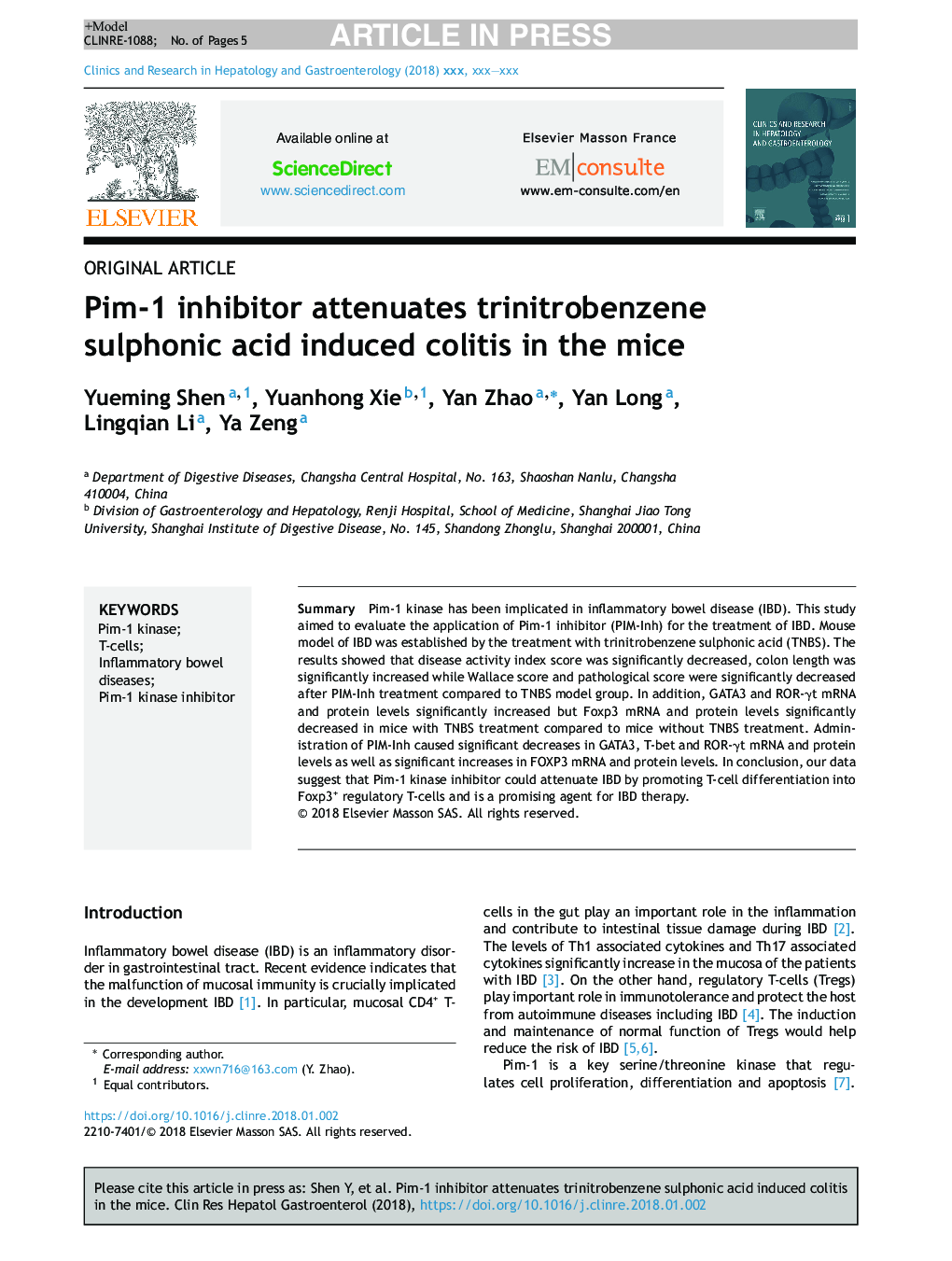| Article ID | Journal | Published Year | Pages | File Type |
|---|---|---|---|---|
| 8963985 | Clinics and Research in Hepatology and Gastroenterology | 2018 | 5 Pages |
Abstract
Pim-1 kinase has been implicated in inflammatory bowel disease (IBD). This study aimed to evaluate the application of Pim-1 inhibitor (PIM-Inh) for the treatment of IBD. Mouse model of IBD was established by the treatment with trinitrobenzene sulphonic acid (TNBS). The results showed that disease activity index score was significantly decreased, colon length was significantly increased while Wallace score and pathological score were significantly decreased after PIM-Inh treatment compared to TNBS model group. In addition, GATA3 and ROR-γt mRNA and protein levels significantly increased but Foxp3 mRNA and protein levels significantly decreased in mice with TNBS treatment compared to mice without TNBS treatment. Administration of PIM-Inh caused significant decreases in GATA3, T-bet and ROR-γt mRNA and protein levels as well as significant increases in FOXP3 mRNA and protein levels. In conclusion, our data suggest that Pim-1 kinase inhibitor could attenuate IBD by promoting T-cell differentiation into Foxp3+ regulatory T-cells and is a promising agent for IBD therapy.
Related Topics
Health Sciences
Medicine and Dentistry
Gastroenterology
Authors
Yueming Shen, Yuanhong Xie, Yan Zhao, Yan Long, Lingqian Li, Ya Zeng,
